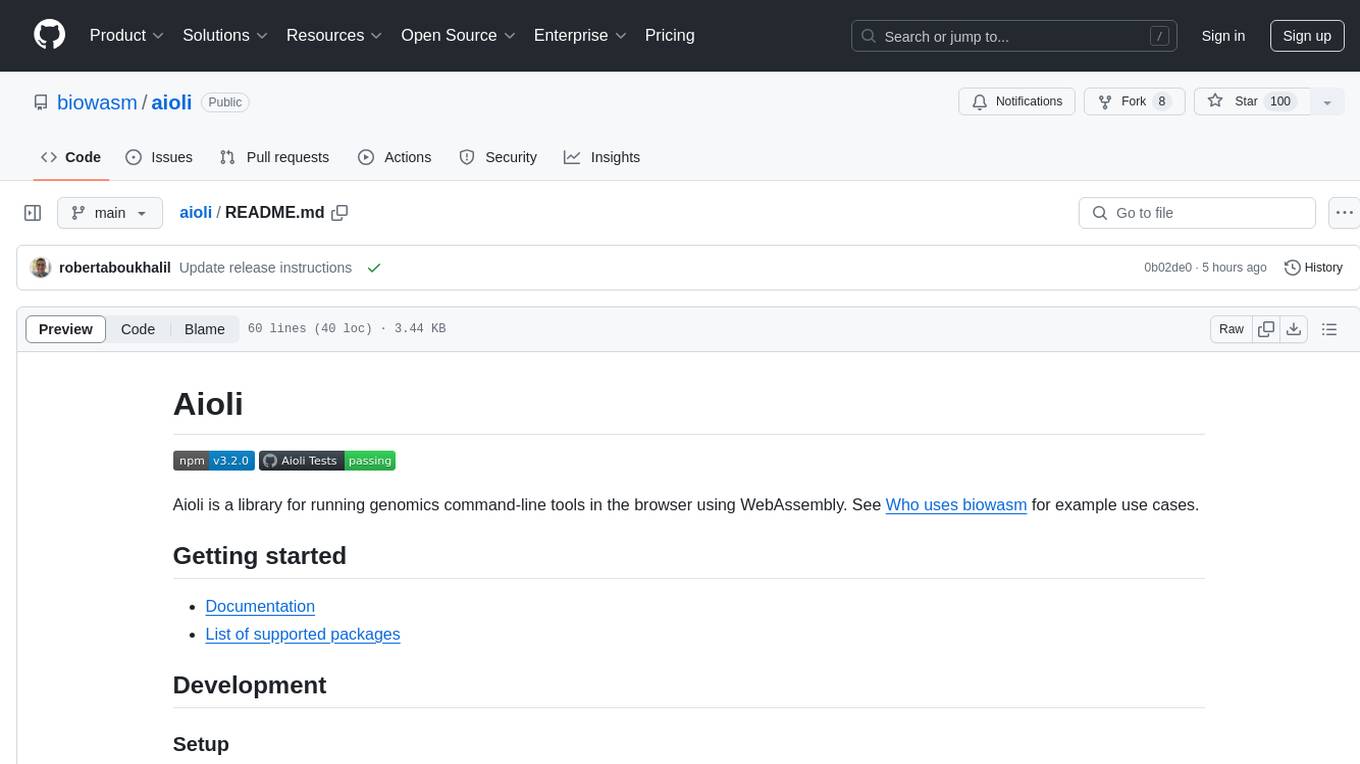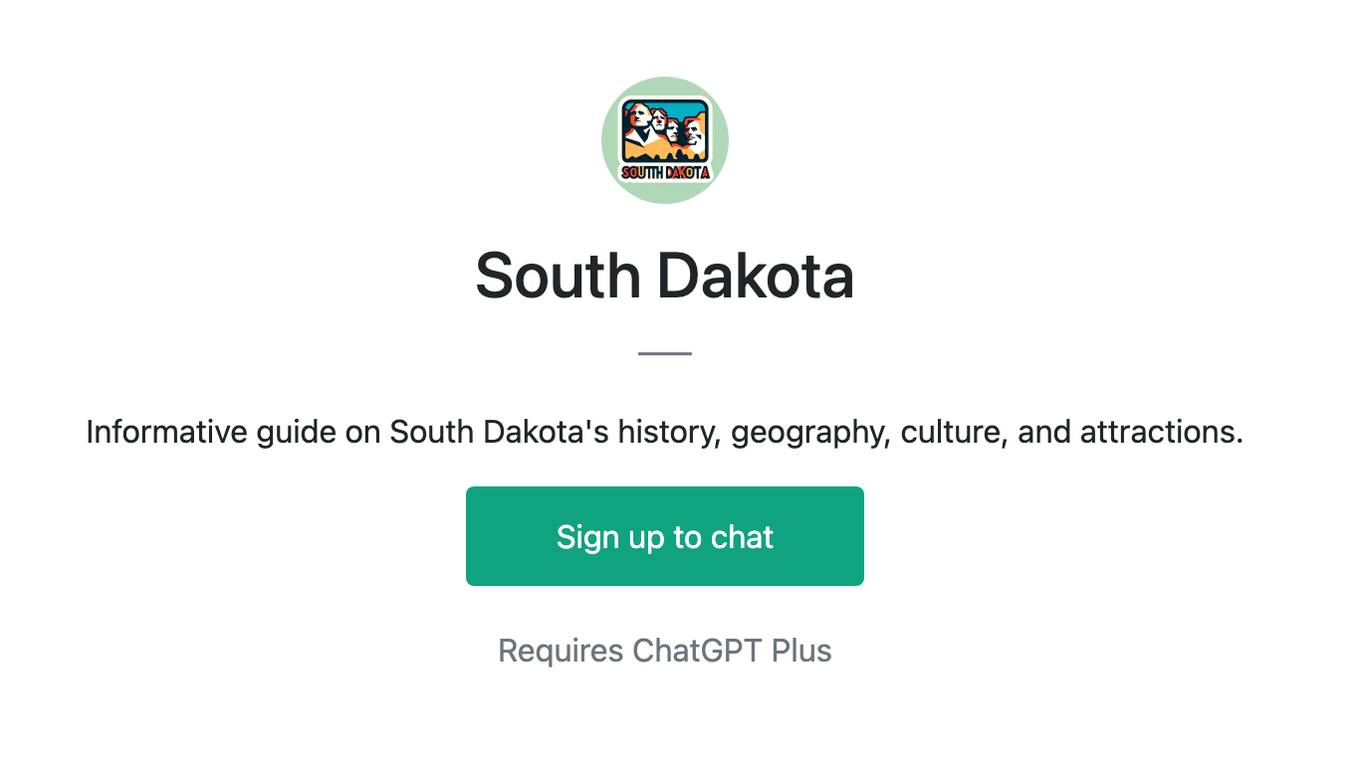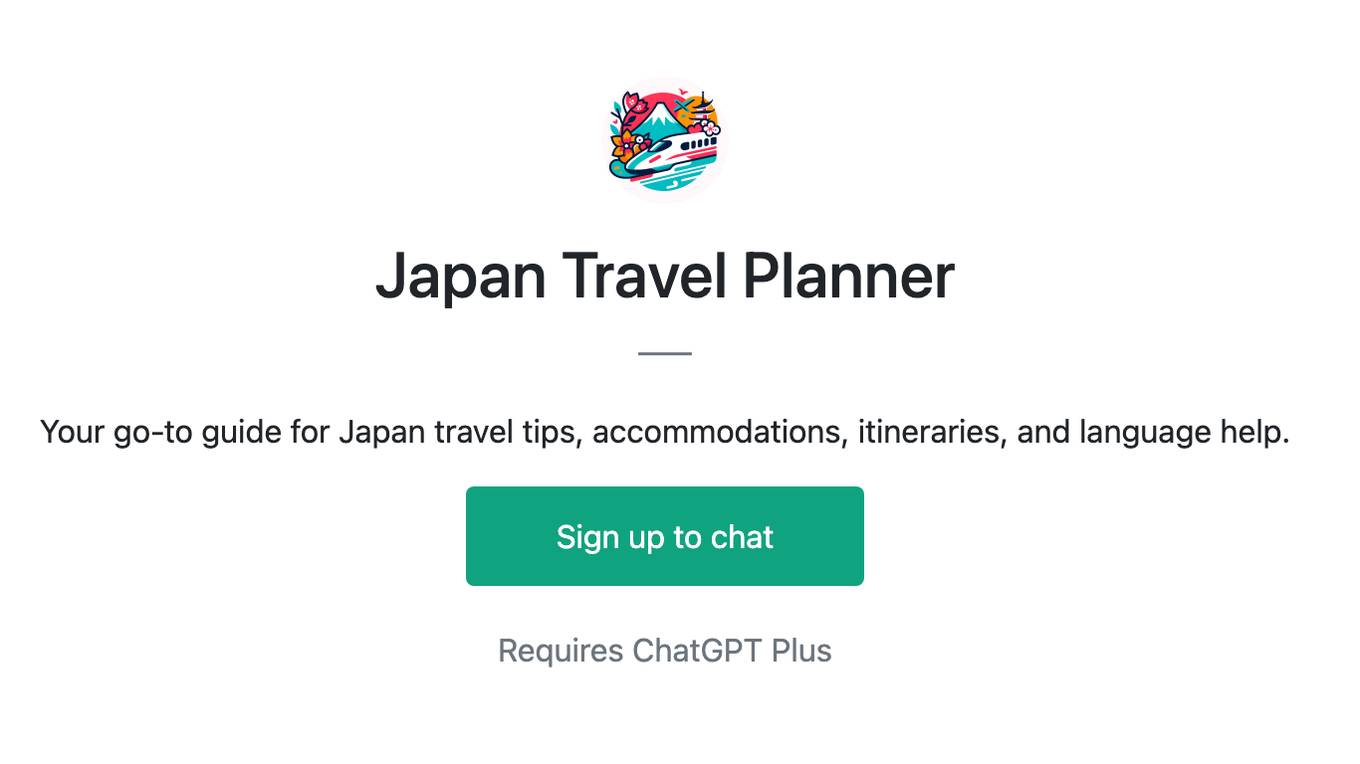Best AI tools for< Mount Files >
0 - AI tool Sites
No tools available
1 - Open Source AI Tools

aioli
Aioli is a library for running genomics command-line tools in the browser using WebAssembly. It creates a single WebWorker to run all WebAssembly tools, shares a filesystem across modules, and efficiently mounts local files. The tool encapsulates each module for loading, does WebAssembly feature detection, and communicates with the WebWorker using the Comlink library. Users can deploy new releases and versions, and benefit from code reuse by porting existing C/C++/Rust/etc tools to WebAssembly for browser use.
github
: 100
2 - OpenAI Gpts

South Dakota
Informative guide on South Dakota's history, geography, culture, and attractions.
gpt
: 2

Japan Travel Planner
Your go-to guide for Japan travel tips, accommodations, itineraries, and language help.
gpt
: 800+